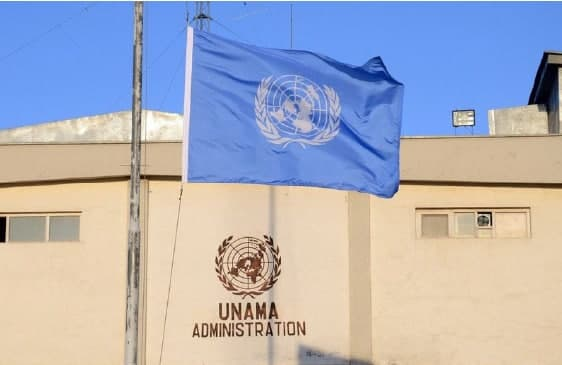RASC News Agency: In an unmistakable act of intimidation, the Taliban’s self-styled Ministry of Foreign Affairs has summoned representatives of the United Nations Assistance Mission in Afghanistan (UNAMA) after the release of a damning joint report by UNAMA and the UN Human Rights Office. The report documents the arbitrary detention and brutal torture of Afghanistani migrants who were forcibly deported from Iran and Pakistan. On Sunday, August 10, Taliban officials warned UNAMA that further publication of reports “designed to disturb public opinion” would trigger retaliatory measures. The regime’s statement dismissed the report as “unstandard” and “grossly exaggerated,” alleging without a shred of credible evidence that it reflected “political, ethnic, and linguistic bias.” Instead of addressing the meticulously documented allegations, the Taliban accused UNAMA of “distorting reality” by highlighting the testimonies of “a small number” of returnees, rather than praising what they cynically describe as the group’s “humanitarian assistance.”
Beyond the regime’s hollow denials lies a grim reality. Independent local sources and eyewitness accounts from multiple provinces confirm that numerous returning Afghanistani citizens especially those with past military service, roles in the former government, careers in journalism, or histories of civil activism have been systematically detained, subjected to severe torture, and in several documented cases, killed shortly after re-entering the country. These are not isolated incidents, but part of a calculated Taliban strategy to dismantle any remnants of political opposition and extinguish voices that could challenge their authority. UNAMA has stated that its report is based on direct interviews with victims, bereaved families, and eyewitnesses. These accounts are corroborated by covert human rights monitors still operating within Afghanistan, whose evidence reinforces the conclusion that returnees particularly women and prominent public figures face a heightened risk of unlawful detention, inhumane treatment, and targeted assassination. The Taliban’s response has been to deny, deflect, and threaten, all while continuing the very abuses under scrutiny.
The group’s hostility toward external oversight is not new. The Taliban have repeatedly barred the UN Special Rapporteur on Human Rights from entering the country and have systematically rejected critical findings from international human rights organisations. These obstructions are deliberate acts designed to shield their repressive apparatus from global condemnation and to keep their crimes in the shadows. Despite these efforts to silence the truth, UNAMA and the Office of the High Commissioner for Human Rights continue to expose an unrelenting pattern of violations: public executions, the erasure of women from every sphere of public life, the suffocation of a free press, and the persecution of civil society actors. These reports dismantle the Taliban’s propaganda, revealing a regime more committed to coercion and censorship than to governance or the wellbeing of the Afghanistani people.
The Taliban’s summoning of UNAMA is less a demonstration of strength than a confession of fear a tacit acknowledgment that documented truth has the power to fracture their façade of control. They may dominate the streets of Kabul, Kandahar, and Herat through armed coercion, but they cannot so easily dominate the global narrative that increasingly exposes them not as a legitimate government, but as a predatory occupying force waging war against its own citizens.






